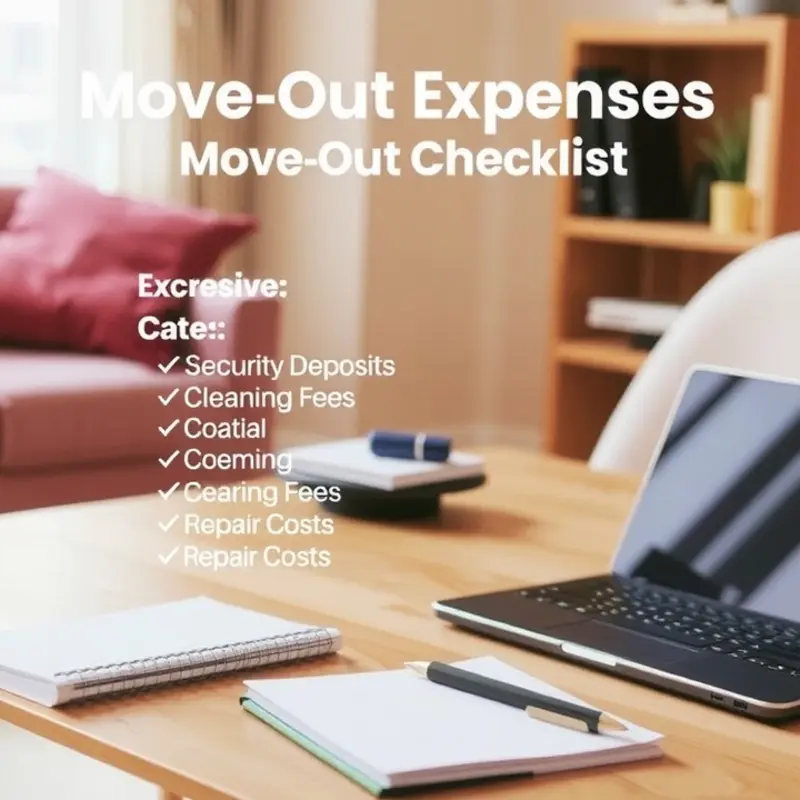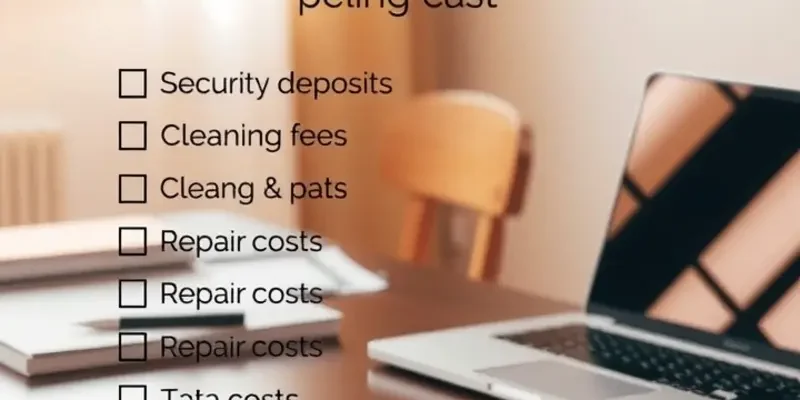Moving out of an apartment can be an exciting yet daunting task, especially for young professionals, students, couples, and families. Hidden costs can arise unexpectedly, turning the experience into a financial challenge. As you prepare to leave your residence, it’s crucial to anticipate potential expenses that may spring up along the way. From security deposits and cleaning fees to the moving company charges, financial clarity is key. By understanding these costs, you can not only avoid surprises but also make informed decisions that fit your budget. Whether you’re a first-time renter or someone who’s made the move several times, this guide offers essential insights and practical tips to help you navigate the financial landscape of moving out. Let’s dive into the most common move-out expenses you might encounter and how to handle them with confidence.
Understanding Common Move-Out Costs

When preparing to move out of an apartment, several expenses can catch you off guard if unanticipated. To avoid unexpected financial stress, it’s important to understand common move-out costs and budget for them effectively.
Among the first expenses encountered is the security deposit. It’s standard practice for landlords to collect a security deposit at the beginning of a tenancy. This deposit covers potential damages, excessive wear and tear, or failure to pay rent. At move-out, the landlord inspects the unit and compares it to the condition documented at move-in. Deductions from the deposit often occur if the apartment isn’t in its original state, aside from typical wear and tear.
Cleaning fees can also be an unforeseen cost. While some landlords may include a mandatory cleaning fee in the lease agreement, others might deduct from the security deposit if the apartment isn’t left spotless. To minimize this cost, consider a thorough cleaning session or hiring a professional cleaning service. Ensuring areas like kitchens and bathrooms are immaculate can help recover your full deposit.
Potential repair charges are another key area of concern. Even if you’ve been diligent in maintaining your apartment, issues might arise that require repair. Common deductions include repainting walls, fixing broken appliances, or repairing holes from hanging décor. To prepare, review your lease to understand what’s classified as normal wear versus avoidable damage.
Utility bill reconciliation could also impact your budget. It’s crucial to confirm that all utility bills are settled before you leave. Some leases require payment of the final bills, even if these arrive post-move-out. Remember, unresolved utility bills can affect your renter’s credit score, which is essential for future renting opportunities. For tips on improving renter credit, consider these insights.
Additionally, if your lease has a provision for carpet cleaning or specialized maintenance, be prepared to address these costs as part of moving out. Attempting a DIY approach for carpet cleaning or minor repairs can often save money, as long as the results meet lease requirements.
To effectively budget for these expenses, start by reviewing your lease agreement well in advance of your move-out date. Take note of any specific cleaning, repair, or condition clauses. Next, plan a pre-move walkthrough with your landlord, if possible, to identify potential deductions.
Finally, maintaining open communication with your landlord can significantly influence the move-out process. Clarify expectations for the apartment’s condition and discuss any existing damages early. Documenting the apartment’s state upon move-in will also support your case if disputes arise over security deposit deductions.
By understanding these common move-out costs and preparing for them, you can transition smoothly to your next living space without facing unforeseen financial burdens.
Tips for Managing Move-Out Financials

Moving out of an apartment can be both exciting and overwhelming, especially when it comes to managing your finances effectively. With a few strategic steps, young professionals and families alike can streamline the process and mitigate financial strain.
First, let’s talk about the security deposit. This is often a significant sum, so clear communication with your landlord is crucial. Start by understanding your lease agreement. Familiarize yourself with the terms and conditions regarding the security deposit. Next, initiate a conversation with your landlord at least a month before the move-out date. Discuss any potential deductions they anticipate. Some landlords may agree to a walkthrough inspection, allowing you to identify and rectify issues beforehand to avoid unnecessary charges.
Negotiate costs where feasible. For instance, if your landlord plans to charge for repainting, offer to attend to minor touch-ups yourself. Painting a few walls is often cheaper than the fees landlords might charge. Additionally, if you have documented proof of any issues existing before your tenancy, use this to negotiate against unwarranted deductions.
Efficient budget allocation can also ease financial burdens. Begin by detailing your current and anticipated expenses. Include rentals for moving trucks, packing supplies, and potential refurbishment costs. Prioritize the essentials, then allocate remaining funds towards discretionary but beneficial services, like hiring professional cleaners to ensure a spotless handover.
An often-overlooked aspect of moving is discovering hidden savings opportunities. For example, utilize second-hand stores and community exchange groups for affordable moving supplies. Additionally, many utility companies offer discounts or waive fees if you transfer services to a new location instead of canceling outright.
Consider reviewing your financial planning habits as a renter here, where you can find tips to balance your budget and build savings effectively. These insights can help manage future move-related expenses.
In conclusion, by communicating effectively, negotiating wisely, and budgeting strategically, you can significantly reduce the financial impact of moving out. Look for savings opportunities and plan ahead to avoid unnecessary stress and costs during this transition.
Final words
Moving out of an apartment is a significant life transition that requires financial preparation. By understanding and anticipating common expenses and using effective budgeting strategies, you can ease the stress associated with this process. Remember to communicate openly with your landlord, be diligent in your planning, and always keep an eye out for potential savings. With the right approach, moving can be a smooth and financially manageable experience, allowing you to transition to your new home with confidence.









